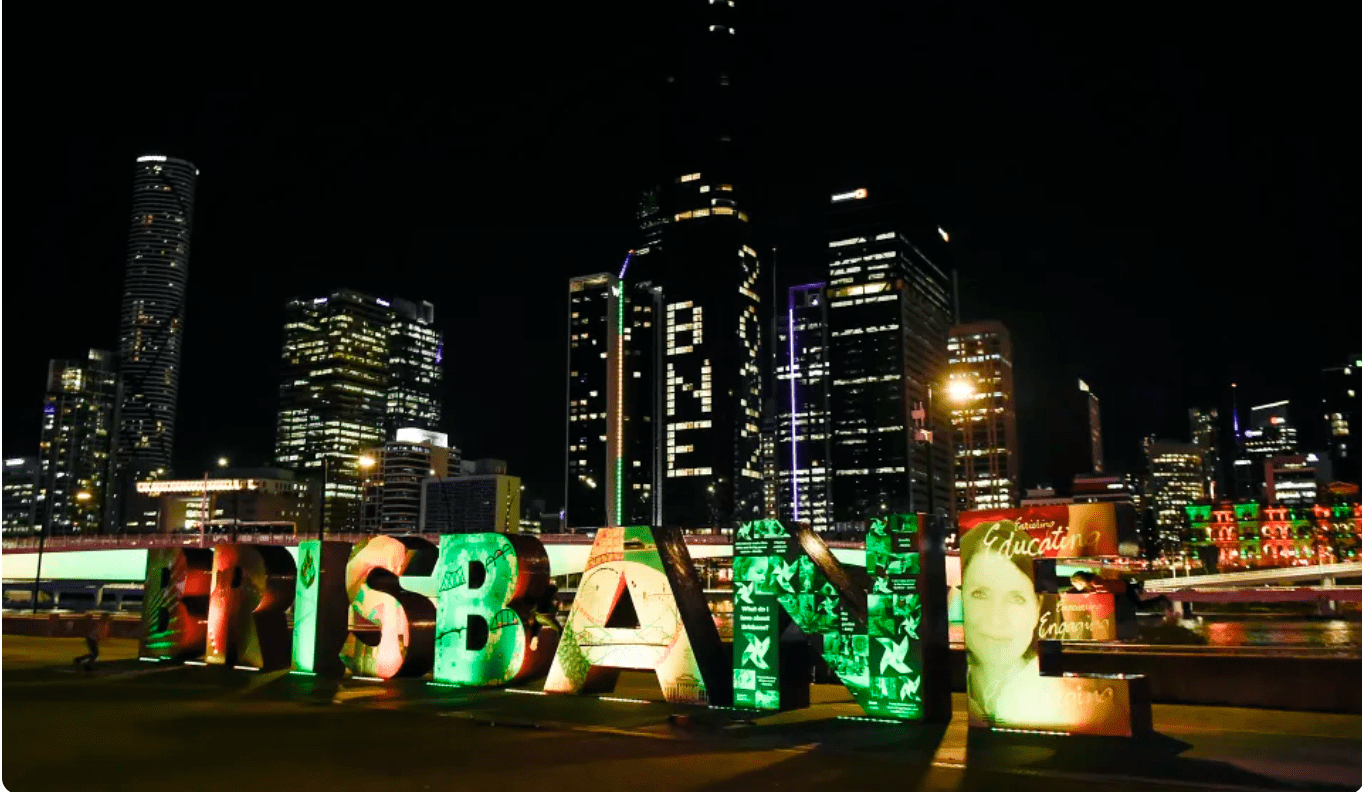Brisbane will host the 2032 Olympic games from 23 July to 8 August 2032 in what will be the third time Australia has held the event. Here’s what our economy is set to gain.
Brisbane is also the smallest city by population to host the games since 1952 and Westpac is predicting a massive economic boost for the small population.
But there is some controversy around whether the games are actually beneficial to the countries that host them.
This is what we know.
Potential $17 billion economic boost
Westpac welcomed the news that Queensland has been successful in its bid to host the 2032 Olympic Summer Games.
Westpac CEO Peter King said that hosting an Olympic Games is a major achievement that will bring lasting positive economic and social impacts for the state and nation.
“This is a big win for Queensland that will have positive impacts for the entire country, as Australia has another opportunity to be showcased on the global stage,” King said.
“New investments in infrastructure, including roads and public transport networks, can also be made across larger areas, benefiting more people. We expect tourism will increase across a wider region, which is good news for the Queensland economy.”
Westpac Business Bank Chief Economist, said the economic boost gained from hosting an Olympic Games is significant.
“In the case of the 2032 Games, it is possible we will see at least $17 billion of economic and social benefits for Australia, with around $8 billion of that flowing into Queensland. The 2000 Sydney Olympic Games were estimated to inject around $6 billion into the Australian economy.
“The 2032 Brisbane Olympic Games will be the first Summer Games to be held across multiple cities, allowing existing infrastructure to be used and reducing costs, which will spread the economic benefits.”
Brisbane homeowners to make hundreds of thousands of dollars if the city hosts the Games
An artist impression of the proposed Gabba redevelopment if Brisbane won the rights to the 2032 Olympic Games. Picture: Supplied
Brisbane homeowners are in line for a $200,000 Olympic bonus due to the city being awarded the 2032 Games.
Experts predict the median house price across Greater Brisbane is expected to soar past $1.2 million within a decade or 40 per cent above the 10-year average.
Housing data drawn from Sydney’s successful 2000 Games showed property prices rose at a phenomenal rate as soon as Juan Antonio Samaranch declared “Sydenee” the winner in September 1993.
In the decade that followed Sydney being awarded the 2000 Games, the median house price rose more than 140 per cent, from $188,000 in 1993 to 454,250 in 2003.
“It’s game on, once it’s awarded because we saw the boom started in 1993 when Sydney was awarded the Games,” Mr Lardner said.
“It was a massive spike. The old banking rule of thumb was that house prices doubled every 10 years and if you hold that up, Sydney rose 40 per cent above that.
Suburbtrends data specialist Kent Lardner says Sydney’s real estate market performed 40 per cent above expectations after it won the right to host the 2000 Olympics.
Mr Lardner said there was a strong case that Brisbane could outperform Sydney purely on the fact the main stadium was within a javelin thrown of the CBD while the Sydney Games epicentre was some 20km in the western suburb in an “industrial wasteland”:.
“The Brisbane venue is extremely closer to the city, so therefore it’s likely the prices will increase at a greater rate,” he said.
“Homebush was a bit of an industrial wasteland and 20km from the city and it is, and always has been, the western suburbs.
Some weight has been given to the fact that interest rates also fell during the lead-up to the 2000 Games, but that was only part of the median house price rise equation, Mr Lardner said.
Over the same period (1993-2003), the Brisbane median house price jumped a mere 83 per cent, significantly less than the ‘rule of thumb’ despite the fall in interest rates, Mr Lardner said.
“Interest rates dropped by more than 2.5 per cent which was a significant driver of the housing market in this period, but Sydney’s growth compared to Brisbane was significantly higher,” he said.
“A large part of this growth was the result of the boost in infrastructure spending and the worldwide attention given to Sydney as a result of the Olympics. Now it is Brisbane’s turn.”
The initial surge in demand, for both houses and apartments, will be generated through an influx of workers, for major infrastructure projects, says CoreLogic’s head of research Tim Lawless.
The jewel in the Games bid is a $1 billion overhaul of the Gabba which will increase the stadium’s capacity to 50,000.
The planned upgrades feature a plaza linking the venue to the Cross River Rail Station which is currently under construction.
It’s expected a large chunk of the workforce, such as tradies, will to relocate to Brisbane from interstate and intrastate and that will place upward pressure on rental vacancies, Mr Lawless said.
Woolloongabba and neighbouring suburbs were already areas of high rental demand and the Games would only sure-up inner Brisbane as an investment hot spot, he said.
“Nearly two thirds of the housing stock in and around Woolloongabba is investor owned,” Mr Lawless said.
“It’s already a rental area in high demand because you have a couple of hospitals in proximity, a big transport hub and local universities.
“With an overhaul of infrastructure in the area, rebuilding the stadium and other capital investment that goes along with the Olympics, it makes sense investors will be more interested in purchasing around the Gabba than ever before.”
It’s not only investors but developers who will be hunting inner-city areas for prime sites.
“Once it is confirmed, it will become much more popular with investors who like that certainly they know the Olympics are going and know the public works will happen,” he said.
“Developers will be pricking their ears up as well as there are some sites ripe for development.”
The unknown in all of this is how interest rates will pan out and how much they will rise over the next decade and what effect that will may have on median house prices, said Mr Lardner.
However, he said there was still so much “affordability” in Brisbane’s housing market, it could absorb some of the downward pressure interest rate rises would have on the property scene.
“We don’t know what is going to happen economically and you stay out of a war, there is no reason why prices couldn’t keep on growing,” he said.
“Interest rates would be a significant variable but Brisbane does have an affordability advantage that should keep it going for some time.”
House prices are on the rise. Find out the value of your property now.
Get a free online property report from Hicks Real Estate. It takes seconds.






